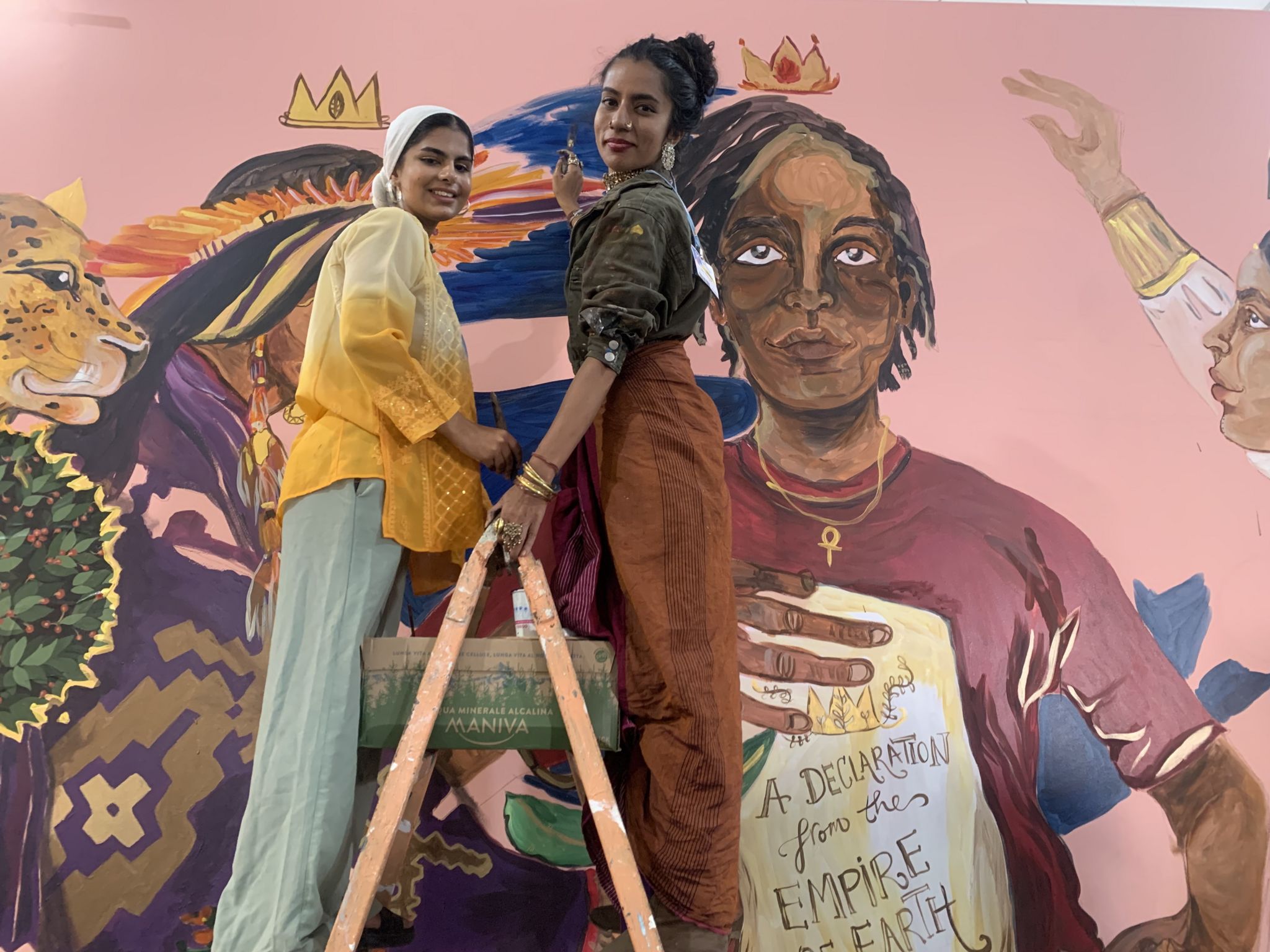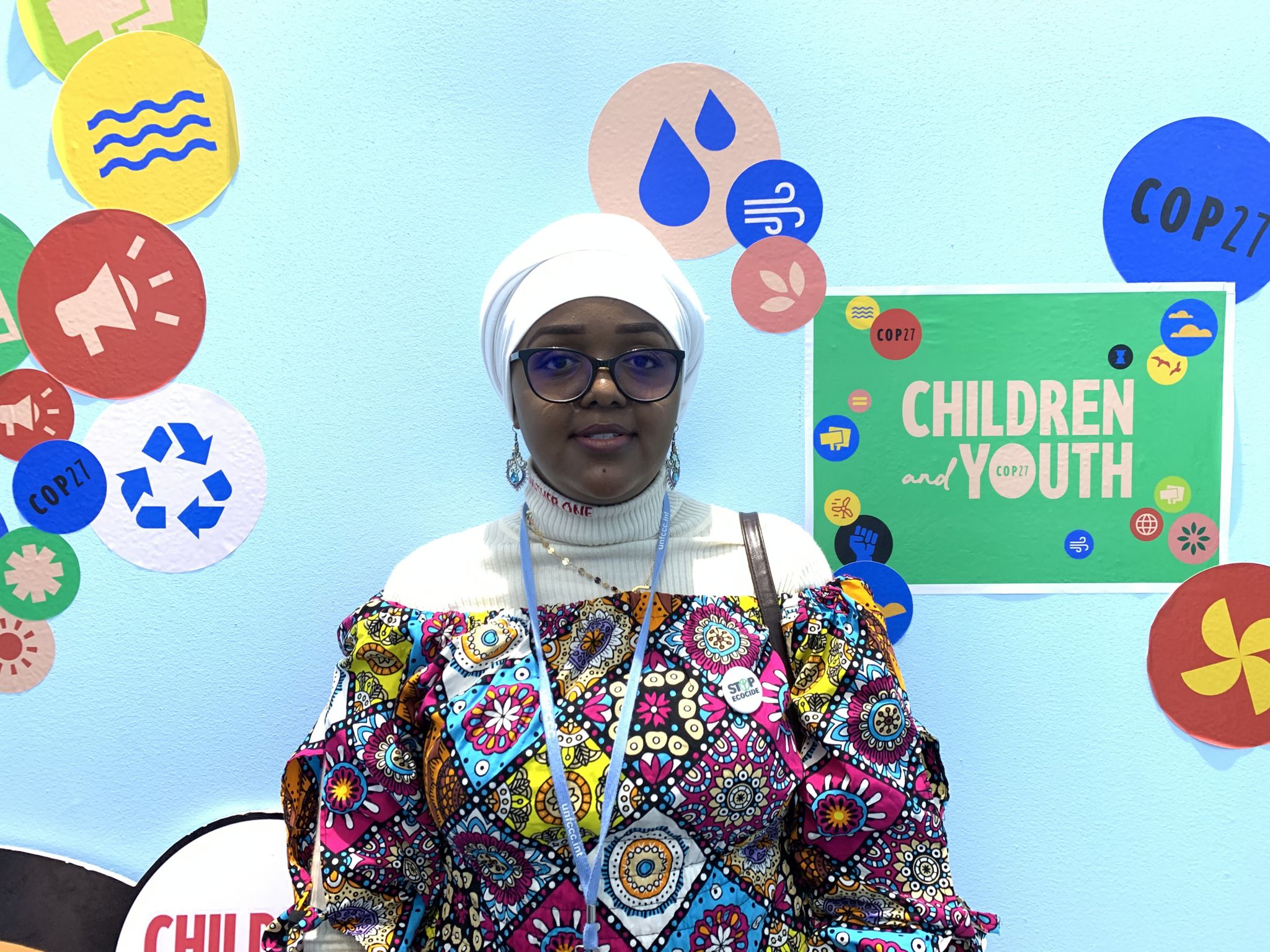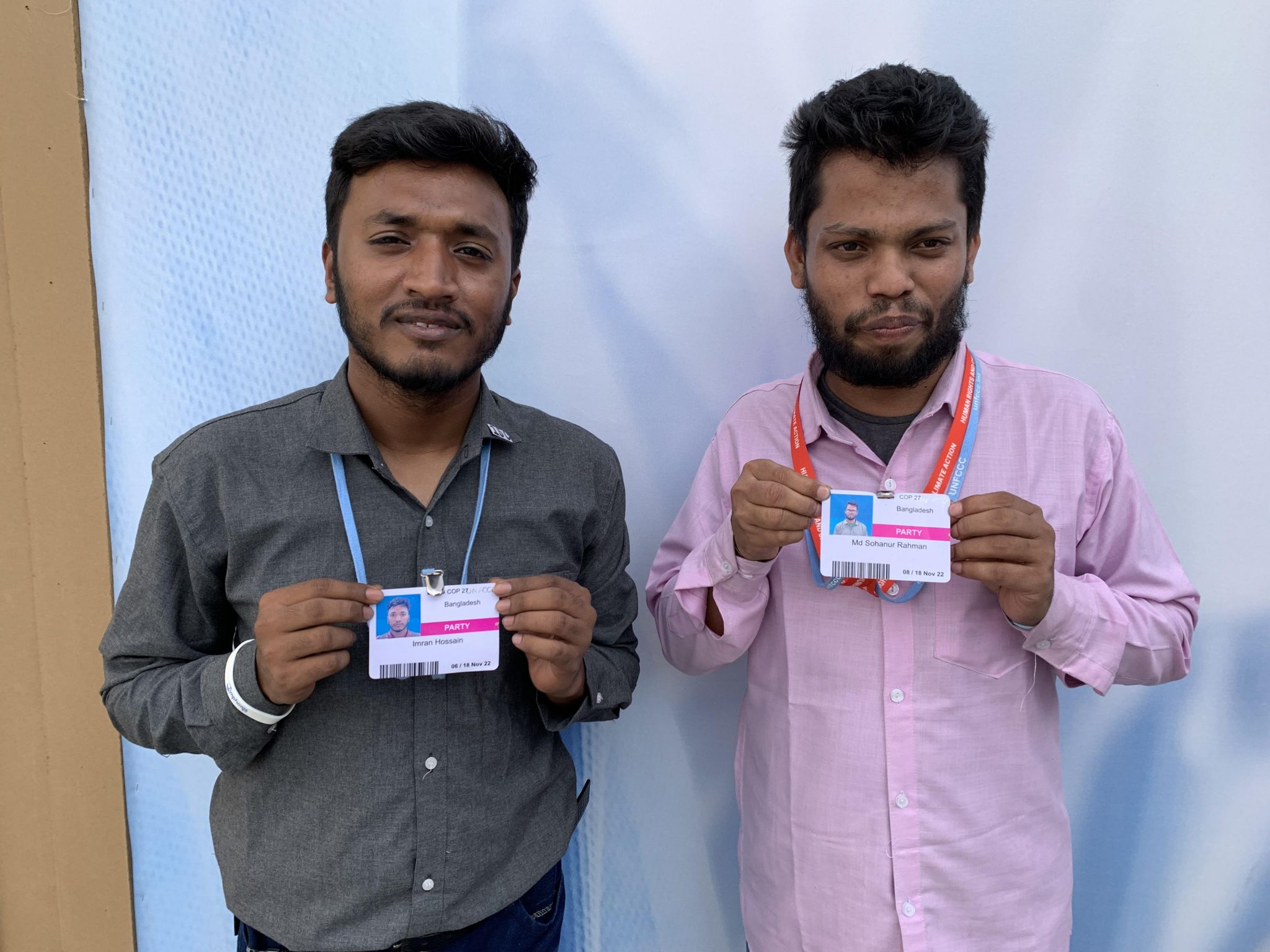COP27: Without Greta, activists make waves at climate summit

Young people are a more powerful force than ever in the UN climate summit, the UN’s youngest climate advisor tells BBC News in Egypt.
“Young people are definitely shaping outcomes here at COP27,” Sophia Kianni says.
Swedish campaigner Greta Thunberg has skipped the Sharm el-Sheikh meeting, calling it a forum for “greenwashing”.
But young people from countries at high risk from climate change say they are “calling it out” from inside.
In an address on Tuesday, climate activist Vanessa Nakate from Uganda will tell governments to wash their “oil-stained” hands.
Speaking to G20 nations, she will tell ministers that they must end the “moral and economic madness” of funding fossil fuels and prioritising short-term politics.
Activists from developing countries say they agree with Thunberg that COP is compromised by the large presence of oil and gas delegates.
But they say their work has an impact here.
Ayisha Siddiqa, 23, is from Pakistan, is one of the headline speakers at the Children and Youth Pavilion. It’s the first time young people have had a dedicated space like this, where last week activists held a formal meeting with UN Secretary-General Antonio Guterres.

It’s one of the most buzzing areas of COP27, with activists jostling to find space to sit and chat on the floor, and Ayisha tells me she’s proud of the space.
“This is for the youth, organized by us. Unlike government and business areas, there’s no corporate branding everywhere,” she says.
She says questions about Greta miss the point about the reality of climate change. This summer, devastating floods killed 1,700 people in her home country Pakistan. “The world has come to an end for people… For me, the stakes are so high that I can’t just give up hope for change,” she says.
Kenyan Mana Omar, 27, worries the summit will not deliver the climate finance that her country needs – calling COP27 more like a “trade fair”.
But she still travelled here to represent her nomadic community severely affected by drought. “My community are missing here, their voices are totally unheard, they live in areas with no internet. I just hope I can do my best to bring their message here,” she explains.

She says her role is to have “hope where there is none” and she wants a better future for her one-year-old daughter.
But many activists, particularly from developing nations, say they faced significant barriers in coming to the summit in Egypt.
Imran Hussein, from Bangladesh, lost his father in cyclone Aila in 2009 and says he is extremely worried about sea level rise in his costal home. He is at COP to get “climate justice” for his mother, who has worked in a garment factory since Imran’s father died.
- Why the latest UN meeting matters
- What have leaders done on climate change in 2022?
- Sharp rise in fossil fuel industry delegates at COP27
Imran and his colleague Sohanur Rahmen explain they got grants for travel and hotels, but they cannot afford to eat at the conference.
Delegates faced costs of about $4,000 a week for accommodation, as well as the costs of travel and visas.
Activists say future climate summits must include special funds and accommodation for young people from civil society.

But, waving their passes, Imran and Sohanur are proud they have been given spaces on Bangladesh’s negotiating team.
It gives them access to conversations behind-the-scenes where countries stake out their positions on the final agreements.
Negotiations between countries on how to curb climate change will go on for the rest of the week, with reports suggesting a large gap remains between rich and poor nations.
Youth activists are hopeful they will secure more money for communities devastated by climate change, and a firm commitment from leaders to radically phase out fossil fuels. But most admit they will probably have to come back next year.







